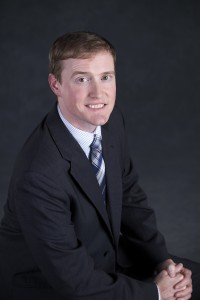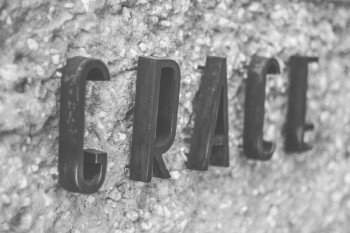Zack Boren was elected the state’s attorney in Pike County, Illinois, in 2014. Before taking office, he worked as a prosecutor and defense attorney in the U.S. Army JAG Corps, attaining the rank of captain. He also worked as a staff attorney for a federal judge in Fort Wayne, Indiana, and as an associate at a law firm in Jacksonville, Illinois. He and his wife, Libby, have two sons.
 What do you do every day?
What do you do every day?
I’m the elected local prosecutor in Pike County, Illinois. I do some administrative work, representing the county board and attending committee meetings, but I mostly spend my time prosecuting criminal cases—felonies, misdemeanors, traffic violations, and juvenile cases.
Why did you go the elected route?
I owed the U.S. Army four years because I did ROTC in college, so after law school I joined the Army’s JAG Corps. For me, representing the government’s interest was a meaningful job. Later, after clerking and working in private practice, an unexpected vacancy for state’s attorney in Pike County opened up, and I decided to go for it. Thankfully, I was elected, and I’m grateful to serve the people of our county.
This year, everyone seems to be focused on the presidential election, but I think all politics is local. Why do you think local voting matters?
Your vote on the national level is a drop in the bucket and, depending on the size of your state, your state vote is only slightly more important. But a county election might be decided by a few hundred votes. Our county, for example, has just a little more than 16,000 people. At that level, your vote is incredibly important.
Local office holders matter to your everyday lives. They make decisions about how your community’s resources are allocated, whether or not someone has a criminal history, which roads and sidewalks will get fixed, and more. Not all candidates are equal, so voters need to do their research to see if candidates will do their best to make good decisions that will help the community to flourish.
What do you think voters should look for in a candidate?
As state’s attorney, my goal is to foster a culture of integrity. I want my community to know I’m doing my best to make good decisions based on the facts of the case and its mitigating circumstances. I shouldn’t base my decisions on who someone is related to, how much money they have, or what race they are. The law should be applied even-handedly. I do my best to treat like cases alike and different cases differently, and to apply the best wisdom and integrity I can with as much transparency as I can. I hope voters will look for these types of qualities in all the candidates they vote for.
How can voters find these things out about the candidates?
When considering a candidate for my position, for example, they can go to court and watch. All proceedings (except juvenile court) are open to the public, and I’d love voters to see what we’re doing.
But even if you can’t make it to court, or if you’re voting for candidates for other offices, you can find out a lot by getting involved in your community and listening to your neighbors, especially if you’re in a small county. Also, most local politicians do interviews on local radio stations and are featured in local newspapers. Pay attention, and you can find out a lot about a candidate for local office.
How do you see your faith influencing how you work?
My faith influences my vocation every day. I see being a prosecutor as a clear application of Romans 13. My goal in every decision I make is to be “God's servant for your good,” i.e. the good of the people who elected me. I believe an appropriate balance between retribution and rehabilitation is the primary way I show love for my neighbors, whether or not I am personally acquainted with them. (I, of course, refer cases to other prosecutors when there is too close a personal connection.)
I haven't thought too much about how a prosecutor bears God's image, but I suppose it goes back to Romans 13 and not bearing the sword in vain. My goal is to make wise decisions in each and every case, applying the authority that God has lent to civil governments.
In the end, I find that being a prosecutor frequently puts me right in the middle of the gospel. I deal with sin and brokenness every day, and on good days I get to see flashes of redemption. It's a joy and a privilege to serve in that kind of work.
Editors’ note: TGCvocations is a weekly column that asks practitioners how they integrate their faith and their work. Interviews are condensed and edited.





